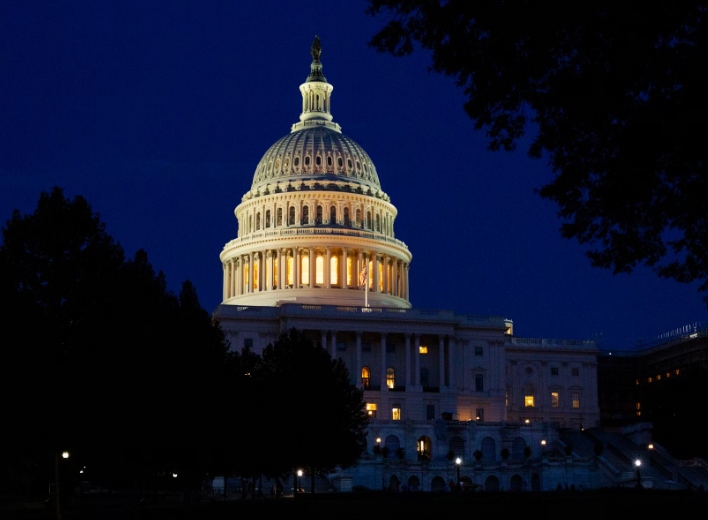The Holiday Season is merry and bright – but does it come with a cost? Make sure to keep the joy while reducing harmful pollution from cooking and heating along with reducing energy costs. Here are some zero or low-cost tips to maintain a healthy home, lower costs, and reduce harmful pollution from fossil fuel appliances and other in home air contaminants during the holidays:
What’s the Issue?
Many fossil fuel appliances emit dangerous pollution like nitrogen dioxide, benzene, carbon monoxide, and formaldehyde, exacerbating respiratory illnesses like asthma and increasing cancer risk. Smaller and older housing units with inefficient appliances and inadequate ventilation compound these negative impacts. At the same time, people of color also live with outsized exposure to outdoor pollution and other home health hazards like mold and lead, making the need for safe homes even more pressing. The good news? There’s plenty you can do to improve the air quality in your home and save you money on your energy bills.
What Can You Do?
1. Improve Ventilation:
Ventilation is Key: Make sure your kitchen is well-ventilated. This is especially important in communities facing higher pollution levels.
Open Windows: Open windows while cooking to reduce indoor air pollutants and ensure proper airflow.
Use Exhaust Fans: Use exhaust fans in the kitchen and bathroom to remove pollutants and moisture from the air. Make sure to also check and get your exhaust fans and ventilation vents cleaned regularly as they could be storing hazards like mold.
Air Purifiers: There are many affordable and low-cost portable air purifiers that can help reduce indoor air contaminants.
2. Energy-Saving Habits:
Turn Off + Unplug Appliances: Turn off lights and appliances when not in use to save energy and reduce emissions.
Use Natural Light: Take advantage of natural daylight during the day to reduce the need for artificial lighting.
Bundle Up: Wear warm clothing indoors to reduce the need for excessive heating.
3. Regular Maintenance: Stay Safe with Gas Appliances
Clean Filters: Clean or replace filters in heating systems and appliances regularly to ensure they operate efficiently.
Check and Maintain Air Monitors: Make sure to have a functioning carbon monoxide detector in your home, especially in tightly sealed spaces.
Check for Leaks: Regularly check stovetops and connections for leaks or damage.
4. Efficient Cooking Practices:
Use Counter Top Electric Cooktops: To reduce dangerous emissions from fossil fuel appliances like gas stoves, try out portable, affordable induction cooktops. In WE ACT’s ‘Out of Gas’ pilot, households with induction (electric) stoves experienced a 35 percent reduction in daily nitrogen dioxide (NO2) concentrations compared to those using gas stoves, when controlling for temperature and apartment-level factors.
Use Smaller Appliances: Use microwave ovens, toaster ovens, or slow cookers for small meals as they use less energy than conventional ovens and emit less pollution.
Cook in Batches: To save on gas and reduce air pollution and climate warming greenhouse gas emissions, consider cooking meals in larger batches. This not only helps save time but also makes the most of your cooking efforts.
Cover Pots and Pans: Cover pots and pans while cooking to retain heat and reduce cooking time.
5. Improve Indoor Air Quality:
Houseplants: Certain houseplants can help improve indoor air quality by absorbing pollutants and emitting oxygen. See a helpful list of these plants here.
Reduce Hazardous Cleaning Products: Be mindful of the potential chemicals of many cleaning supplies and make sure to choose more natural options.
6. Community + Other Resources:
Seek Assistance: Look for local programs that provide resources or financial assistance for home improvements, energy efficiency upgrades and utility assistance such as the Low Income Energy Assistance (like LIHEAP) and Weatherization programs. Local utility companies often provide energy assistance programs to help low-income households cover costs. Though many federal rebates are costly upfront and may not work in renting spaces, it’s worth exploring options that may be a fit for you.
Join Community Groups: Participate in local community groups that offer support and share tips on maintaining healthy homes and reducing energy costs.
Join Healthy Homes First – WE ACT’s campaign is coming soon! Join our effort to improve home health awareness and advocacy with a whole-of-home, equitable approach.
By implementing these tips, you can create a healthier living environment and reduce pollution without significant cost. Wishing you a warm, cozy, and healthy holiday season!





